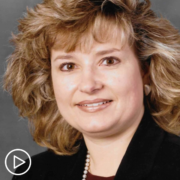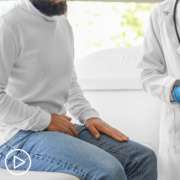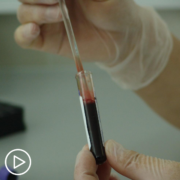How a Skin Cancer Expert Empowers Patients
How a Skin Cancer Expert Empowers Patients from Patient Empowerment Network on Vimeo.
Dr. Anna Pavlick is a medical oncologist with over 20 years of experience treating patients with skin cancer and is the founding Director of the Cutaneous Oncology Program at Weill Cornell Medicine and NewYork-Presbyterian. To learn more about Dr. Pavlick, visit here.
What are steps does skin cancer expert Dr. Anna Pavlick take to empower her patients? Dr. Pavlick explains how self-education and being comfortable with your healthcare team are key components of patient empowerment.
Related Resources:

|

|

A Review of Current Advanced Non-Melanoma Skin Cancer Treatment Options |
Transcript:
Katherine:
Yeah. Dr. Pavlik, how do you empower patients?
Dr. Pavlick:
You know, when I talk to patients I really do try to number one: educate them. I am big believer in bad artwork, because I’m a bad artist. And so I really try to draw out schematics to help patients understand how they therapy that I’m proposing is going to work, so they understand the mechanism. Patients will also go home with printed handouts so that they can go back and read about what we talked about, because many times patients absorb maybe one-quarter of what’s been said in a consult.
I encourage people to bring their family members or friends so that they can hear; two sets of ears is always better than one. And I fully support them; if they want to go get a second opinion, my answer is, “Absolutely.” I do not get offended. I feel that if – because a lot of times the patient’s going to say, “I don’t want a second opinion, but my family does.” You’ve got to live with your family. Go get the second opinion. 99 percent of the time, experts who do this for a living all have the same answers. And so it just is going to solidify for your family that the right thing is being done, and then you can also decide where do you feel most comfortable?
If Dr. A and Dr. B tell you the same thing, what environment do you feel most comfortable in, so in the event that you had questions, or you didn’t feel well, where do you want to go? So, I strongly encourage that. And if somebody comes back and says, “You know, I really think that this place fits me better,” my answer is, “That’s absolutely fine; thank you for letting me know. If there’s anything I can do, please reach out.” Because, again, bottom line is I just want the best outcome for the patient.










